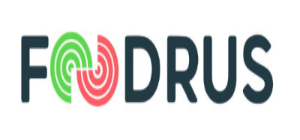BIOMIMIC
Innovative biotechnological methods for effective mining of secondary material
With the escalating demand of metals in an increasing global population and a rapid technology development, Europe is confronted with the challenge to secure a sustainable metal supply to its industry and secure jobs. Moreover, the lack of a cost-effective technology to extract heavy metals from hazardous, metal-rich fly ash collected after the incinerations of ever-increasing complex municipal solid waste streams has escalated societal challenges due to environmental as well as monetary costs. Another challenging waste stream is hazardous waste from alumina production. The production of 1 ton of alumina generates between 1-1.5 ton of bauxite residue, commonly called “red mud”. Red mud is considered hazardous due to its high pH and it has been involved in hazardous incidents.
BIOMIMIC is a two-year and a half project funded by the European Union´s Horizon 2020 Programme, aiming to address the challenge of extracting metals, while leaving the remaining material free from toxic substances. The project will explore naturally occurring bioprocesses, namely bio-sulfide precipitation and biosorption. Employing beyond state-of-the-art innovations in microorganism mixtures and reactor design is expected to increase the rate of these typically slow biotechnological methods. The expected impacts of BIOMIMIC are the following:
- Pushing the EU to the forefront of sustainable processing technologies;
- Improving competitiveness through creation of added value and new jobs;
- Creating value of raw materials currently landfilled enabling better efficiency of exploitation of raw materials’ resources;
- Increasing the range and yields of recovered raw materials (including water and energy consumption) leading to reduced environmental footprint.
The BIOMIMIC multidisciplinary consortium is formed by 11 partners including end-user industries, innovators, SMEs, and researchers from Sweden, Germany, Ireland and Hungary. The Project coordinator is Research Institutes of Sweden (RISE).



